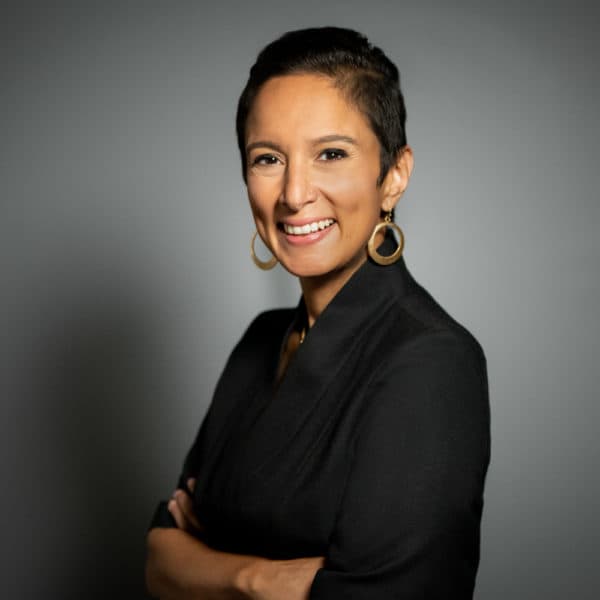Advertisement
Congressional leaders call for investigation of Boston's asylum office
Several members of Massachusetts' all-Democratic congressional delegation and some Maine lawmakers are calling for a formal investigation into the U.S. Citizenship and Immigration Services’ asylum office in Boston.
The office processes claims for refugees who want to settle in Massachusetts, Rhode Island, New Hampshire and Maine.
The lawmakers are concerned about an “alarmingly” low rate of approval compared to other offices across the country.
Those concerns are based on a report called "Lives in Limbo," a joint project by the University of Maine School of Law Refugee and Human Rights Clinic, the Immigrant Legal Advocacy Project in Maine, the ACLU of Maine and Amherst College Visiting lecturer Basileus Zeno.
Zeno joined WBUR's Morning Edition host Rupa Shenoy to discuss the report's findings.
Below are highlights from their conversation, which have been lightly edited.
Interview Highlights
On what this report found
"The report investigates the high rate of denying asylum cases at the Boston asylum office, which became troubling. Between 2015 and 2020, we started to see a dramatic decrease in terms of approving asylum cases. Nevertheless, by tracing the outcome of these cases later on in the court, we found the majority actually won the asylum cases, which means from the very beginning they have a merit. Nevertheless, they were denied — unlawfully denied — by the Boston asylum office."
On how the Boston asylum office compares to other offices
"One of the startling differences — for instance take San Francisco: the grant rate is 52.4%. But if you compare that to Boston asylum office, only 15.5%. Actually, Boston asylum office and New York are the worst in the country. New York had approved only 10.6% of the cases. So when we are talking about this same demographic, same category of people who are fleeing the same source of threats and persecution — but if the fate of your case is decided actually by the location where you are seeking asylum, then we are talking about a major problem."
On why there is a difference in approval rates between the Boston office and others
"There's multiple reasons. One of them is there's a culture of suspicion and bias toward certain applicants. If you are from the Middle East and Africa, Black asylum seekers are more likely to be denied asylum at the Boston asylum office.
And the second factor is basically the oversized role of the supervisor asylum officer. So even if the asylum officer from your case has merit and she or he is intending to approve your case, the supervisor asylum officer — at that office specifically — they block the cases. Basically, they drag the system over many years and ultimately deny the case. So they exercise pressure on the asylum officers.
The [next] factor is fatigue. When you interview people who are talking about persecution, you are interviewing like two or three cases per day. All these stories would look for you similar. There's no distinction.
Finally, because of the time, the pressure and [having] to issue decisions, the asylum officers are more likely to cut corners, which to me, is like instead of having a due process, they are recycling decisions and basically not giving enough time to individual cases. It's always easier to refer and deny rather than actually risking your delegation."
Advertisement
On whether the Trump administration accounts for any information they found
"The asylum process in the United States is a political process. It's not a humanitarian process. It's not just about Trump. The whole asylum process in the United States is basically contingent on the public and official rhetoric toward the country.
As you know, there was the travel ban, which Trump initiated under executive order and targeted like specific countries including Syria, Yemen and a few other countries. We saw immediately a shift in treatment. The asylum officers and supervising asylum officers had more inclination and empowerment to deny or refer cases. So definitely we see a trend and that could explain partly what's going on at that office and other offices."
On his own experiences dealing with applying for asylum
"I was part of this process as well. I had my asylum case at the Boston asylum office filed in 2013, had three interviews, and our case ultimately was denied in May 2021. We had to leave the country, actually. Now I'm speaking to you from Canada. I experienced firsthand the brutality of the system on the one hand, and also how helpless actually representatives could be because this is an opaque and really closed system."
On what can be done to address this low rate of approval
"I think the first good step was taken by actually [calling for an] investigation on what's going on at the Boston asylum office. However, that said, it doesn't treat the source of the injustice that's taking place at these offices. The process should be transparent and also racist asylum officers and supervisory asylum officers should be held accountable ... That's the only hope we have."
This segment aired on June 28, 2022.

